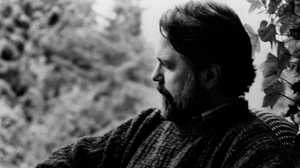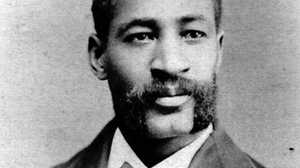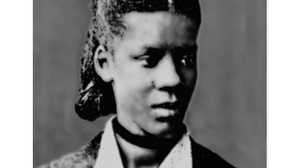Thomas Rutling, Tenor

Tenor Thomas Rutling is one of four members of the Fisk Jubilee Singers who traveled continuously with the troupe during all three of its tours of the U.S. and Europe. The twenty-four-year-old Rutling elected to remain in Europe after the singers disbanded and continued to evangelize, perform and teach music there for the rest of his life.
Born a slave in Wilson County, Tennessee, about twenty miles from Nashville, Rutling was the youngest of nine children. His father either ran away or was sold before Rutling was born and his mother was sold when he was only three. As a witness to the painful separation of mother and son, the daughter of Rutling’s master took him into her care, taking him and two siblings with her when she married and moved to a new plantation. Rutling began working in the fields when he was eight, but was appointed to the relatively privileged position of dining room waiter just a few years later. Although he was instructed not to repeat the conversations he overheard in the dining room, young Rutling spread news of the Civil War to other slaves on the plantation.
In 1865, six months after Union soldiers invaded Rutling’s plantation and took its owner captive, Rutling and his brother left for Nashville, where an older sister taught him to read and write. Although he was now only around eleven years old, Rutling landed a job assisting a surgeon who worked under General Clinton B. Fisk. Recommended as a candidate for entry to the American Missionary Association’s Fisk School, Rutling showed up at the school’s doors as soon as it opened and was admitted to the High School. He earned his tuition by waiting on tables for Fisk's teachers.
Dubbed by one paper "the best tenor in Tennessee, Rutling was asked to join the school’s choir on its fundraising tour of the U.S. in the fall of 1871. He stayed with the singers for the next seven years, despite eventually becoming so exhausted that he collapsed several times during their final tour of Germany. Once the troupe disbanded, Rutling took a six-week walking tour of Switzerland to recover his health and soon took up performing again.
After successfully teaching himself French, Rutling decided to pursue the study of languages. He spent time in both Germany and Italy. He then returned to England, where he hoped that the wider recognition of his name would allow him to give concerts for a living. Unfortunately, booking regular appearances proved more difficult than Rutling anticipated, and after a weakening bout of influenza in 1890, he decided to become a voice teacher. In 1907, at age fifty-three, Rutling stopped teaching, published his memoirs, and began performing again, mostly at small Wesleyan and Presbyterian churches in Manchester and Birmingham. He passed away in Harrowgate on April 26, 1915.







